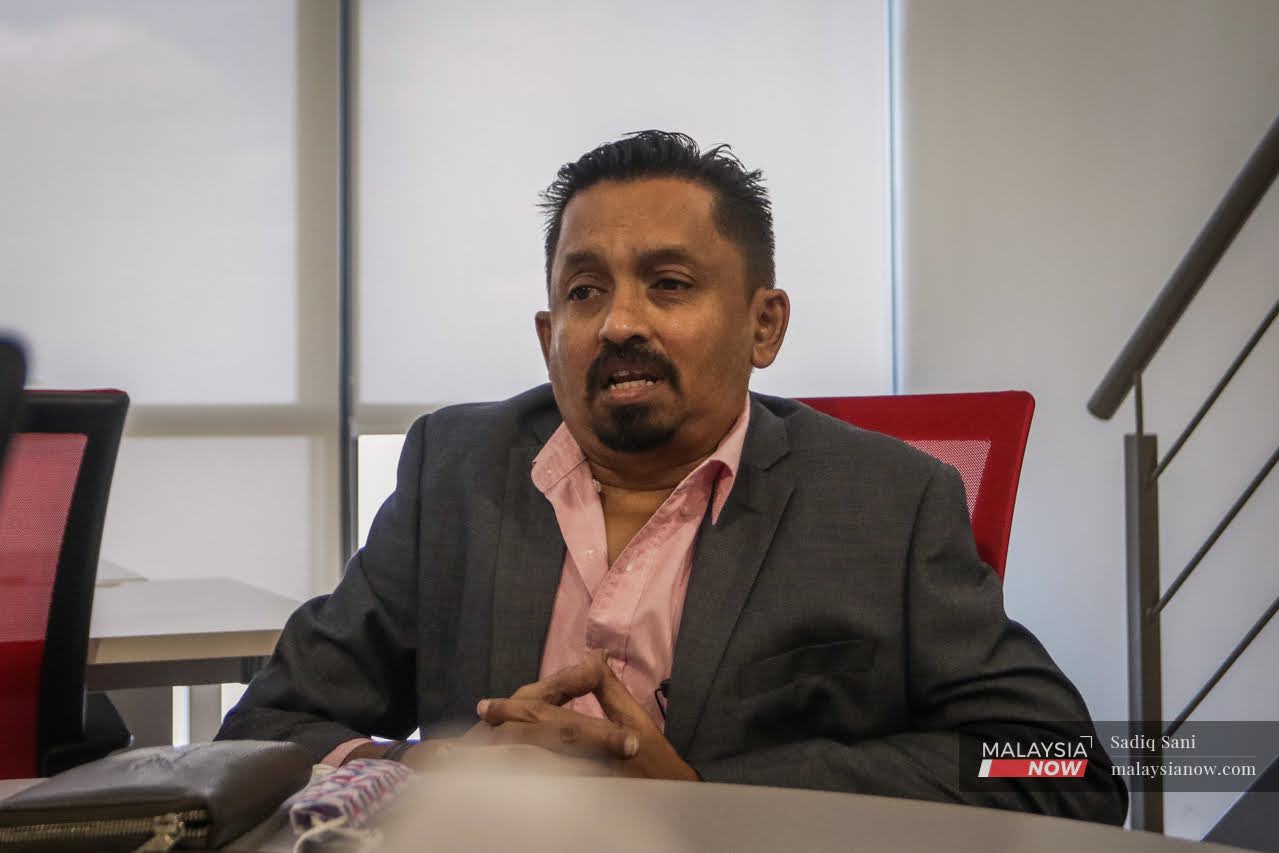Once in prison, always a jailbird?
Many who are handed jail terms end up behind bars again for the same crimes after their release, raising questions about the effectiveness of prison programmes.
Just In
Once a month, every month, Ravindran Vengadasamy puts on a freshly ironed shirt, a tie, long pants and a pair of leather shoes.
After breakfast, he sets off. His destination: Kajang prison in Kajang, Selangor.
At the entrance, he is greeted by the guards on duty who walk him through a number of other doors leading into the jail itself.
There, he spends the day catching up with the inmates. He speaks cheerfully, asking if there is anything they need.
After 12 years of working as a prison counsellor, he is familiar with each of the prisoners there. Once in a while, he does a double take. “You again? When did you get sent back to jail?”

For him, the fact that inmates are ending up back in their cells despite having been freed is telling. In his opinion, it shows that prison in and of itself is not enough to change the attitudes of those sentenced to time behind bars.
The first time he ever set foot in a prison, Ravindran was struck by the aura of loneliness and isolation that shrouded the building.
On death row, where he is currently assigned, the atmosphere is even heavier as inmates await their appointment with the gallows, clinging to the hope of receiving a pardon before then.
While he is uncomfortable with the grim climate of prison, Ravindran acknowledges its necessity.
“We have to understand that it’s a place for rehabilitation, not a place for them to rest and socialise,” he told MalaysiaNow in a recent interview.
“As a member of the public, I think it must remain this way. Don’t let them have fun and get comfortable there. They need to fear and hate prison.”
Recalling his long years of working with prisoners, Ravindran estimates that only 30% to 40% of them succeed in turning over a new leaf. The rest eventually fall back into their old ways and end up in jail once more.
He believes that Malaysian prisons need a holistic approach to dealing with prisoners that will have a comprehensive impact on those doing time for their wrongdoings.
The current programmes prepared by prison officers, he says do not effectively help the prisoners.
“Some of the programmes are completely useless,” he said. “They only do what those in authority tell them.
“Of course, some of the programmes will amount to nothing. They just recycle them over and over again.”
The situation is even worse in the women’s block, he said. There, the programmes are weak and do nothing to help the inmates improve their lot in life.
“They need goal-oriented programmes,” he said. “Then, they will get results.
“Prison is a very closed-off space,” he added. “If they want results, they will have to open up a little to outsiders.”
MalaysiaNow has contacted the prisons department for a response.
Nevertheless, Ravindran said the prison personnel and officers are very helpful and always assist him where they can in carrying out his counselling duties.
“They respect us very much,” he said.
From bad to worse in jail
A former inmate who asked to be known as Gurunanthan said the years he spent in prison did not lead to a change of heart. Instead, he continued committing the same offences.

More often than not, he said, prisoners were instead taught to commit worse and more extreme crimes that would provide greater financial returns.
“Say a ‘big brother’ gets sent to jail and he meets with a snatch thief,” he said.
“After a few months, the snatch thief gets out of jail and now, he’s good at robbing banks, too. Who taught him? The big brother.”
Other inmates become slaves to these “big brothers”, he added.
“They bring them trays of food, and this and that. All sorts of things. This is the problem. The prison needs to separate them. Don’t let them meet.”
Gurunanthan himself had a long history of crime and spent years following gangs, stealing, and selling and possessing drugs.
He was finally sentenced to jail for the possession of drugs. But after serving his sentence, he said, he went back to doing the same thing.
It took a great deal of perseverance for him to change his ways but today, he no longer leads a life of crime. Instead, he runs his own rehabilitation centre in Petaling Jaya called “Seeds of Hope”.
There, he looks after and supervises about 40 ex-convicts from all walks of life. Some of them had been sentenced to death for crimes such as murder and only escaped capital punishment by the skin of their teeth.
At the centre, Gurunanthan conducts a variety of programmes in addition to skill classes and social activities such as chess games.
“Some of them are working, some of them are ill. They take care of each other,” he said.
Back in prison, it has been six years since Ravindran worked with inmates in regular cells. Now, he only sees those who have been sentenced to hang.
Throughout those six years, Ravindran claims he has never seen anyone from the government come to meet with the prisoners.
“I’ve never met any other counsellor,” he said.
He urged the prisons department to hold discussions with the relevant parties to ensure that inmates receive the necessary support to help them forge a new life.
“When people lose their lives, they know how important and valuable it is,” he said.
“If we don’t give them the correct guidance, they will sink again and again.”
Subscribe to our newsletter
To be updated with all the latest news and analyses daily.

